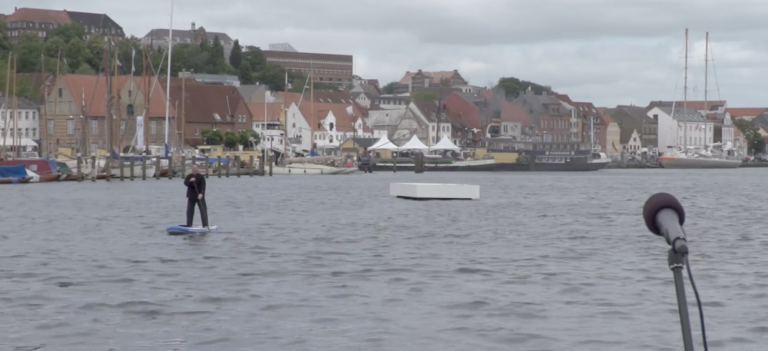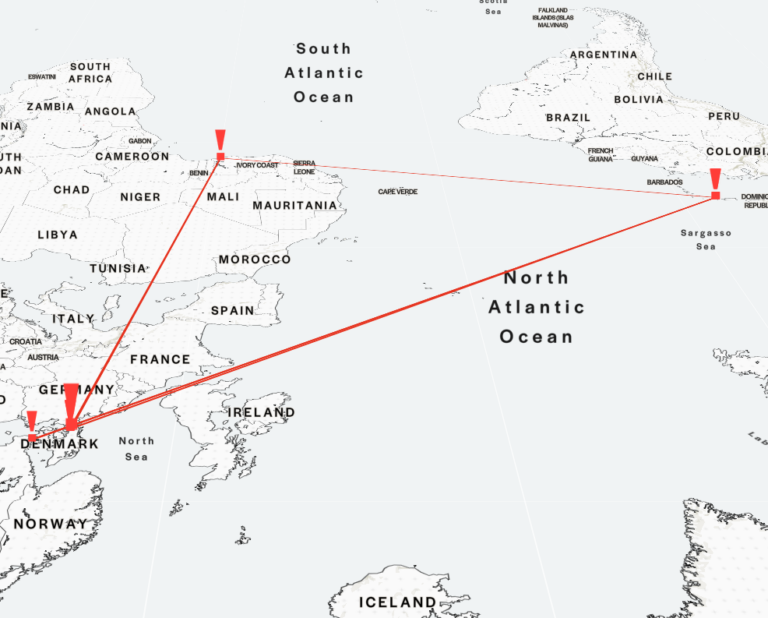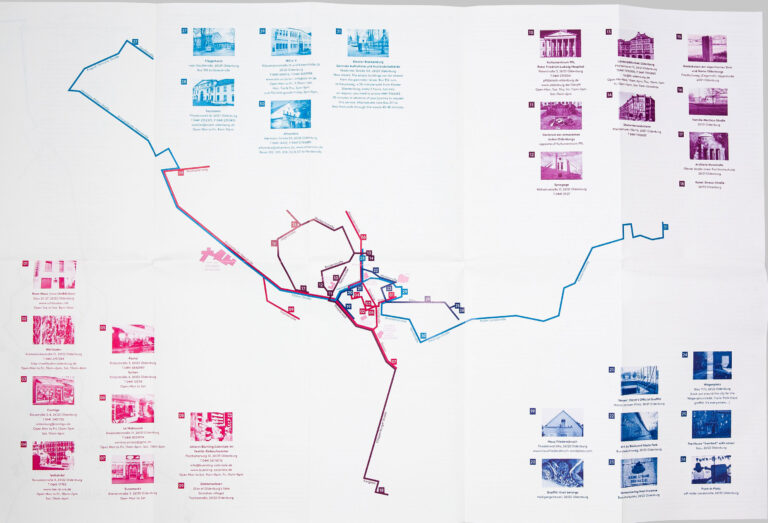Review: Flensburg Campus Talks: Spaces of Decolonial Education (2024/2025)

The Campus Talks on Spaces of Decolonial Education took place at the Europa-Universität Flensburg in the autumn and spring semesters of 2024/25. A review.

The Campus Talks on Spaces of Decolonial Education took place at the Europa-Universität Flensburg in the autumn and spring semesters of 2024/25. A review.

Sybille Bauriedl and Inken Carstensen-Egwuom have written a text for Ulrike Bergermann about colonial monuments, contested memory politics and the white way of seeing.

There is an article about Flensburg's colonial entanglements on the interactive map "Decolonial [Hi]stories" in the project Decolonial Memory Culture in the City.

In the spring semester 2025, four exciting talks will once again take place in the series “Spaces of Decolonial Education” at the Institute of Educational Sciences at Europa-Universität Flensburg.

In an article published in 2024 in the journal sub\urban (German only), Sybille Bauriedl (European University Flensburg) and Linda Pasch (University of Bonn) look at postcolonial maps. The article examines the extent to which the maps combine decolonial politics of memory with a critical reflection on map production and the power of maps.

Three talks on decolonial education will take place in the autumn/winter 2024 as part of the Flensburg Campus Talks.

The 2024 published anthology 'Denmark as a global player 17th-20th century - Colonial possessions and historical responsibility' deals with the colonial history of Denmark. In this blog post Prof. Bea Lundt introduces the anthology and presents her own contribution to the book about Fort Christansborg in Ghana.

The Flensburg Maritime Museum not only offers exhibits and background information on seafaring, the port and the German-Danish colonial history of Flensburg, but has also built up an extensive library on these subjects. Learn here more about how to use the library.

The illustration of the Flensburg shorelines shown on the homepage of the Flensburg Postcolonial Network is a collaboration between Felisha Maria Carenage and Nelo A. Schmalen. In a text we explain in particular the background to the graphic of the shorelines, which has its origins in a comparative map analysis by Nelo A. Schmalen.
![Buchcover des Sammelbands "Geographien der Kolonialität". Im oberen Drittel steht in weiß auf blauem Hintergrund "Sybille 'Bauriedl, Inken Carstensen-Egwuom (Hg.), Geographien der Kolonialität, Geschichten globaler Ungleichverhältnisse der Gegewart". Der Rest des gesamten Buchcovers ist durch ein Bild des Denkmals "I am Queen Mary" ausgefüllt. Zu sehen ist eine große schwarze Statue auf einem Sockel. Im Hintergrund ist eine große Backsteinwand mit mehreren Fenstern zu sehen. Der Sockel ist gerade so größer als ein Mensch. Vor dem Sockel stehen Menschen, die auf die Statue schauen. Von den Menschen ist jeweils nur der Hinterkopf zu sehen. neben dem Sockel sind zwei Menschen zu erkennen, die zur Menschenmenge vor dem Sockel sprechen. Von den beiden Menschen ist der Kopf und ein Stück des Oberkörpers zu sehen. Die Statue auf dem Sockel nimmt den meisten Platz auf dem Buchcover ein. Dargestellt ist eine in einer Art Thron sitzende Frau. In der linken Hand hält die Frau eine Fackel, in der Rechten ein Messer, welches traditionell zum Schlagen von Zuckerrohr verwendet wird. Die Frau trägt eine Bluse und einen Rock. Um den Kopf hat die Frau ein Tuch wie eine Art Turban gewickelt. Am unteren Rand des Bilds steht in weißer Schrift "[transcript] Sozial- und Kulturgeographie".](https://flensburg-postkolonial.de/wp-content/uploads/2023/11/Buchcover_Geographien-der-Kolonialitaet.png)
In September 2023, the anthology Geographies of Coloniality - Histories of Global Inequalities was published by Sybille Bauriedl and Inken Carstensen-Egwuom, both part of the Integrative Geography department at Europa-Universität Flensburg. The anthology also includes contributions dealing with Flensburg's colonial entanglements.